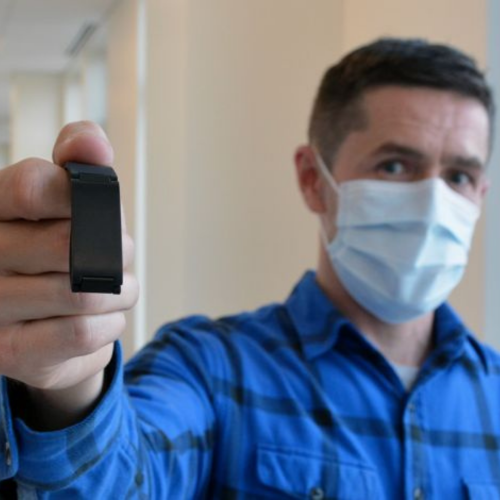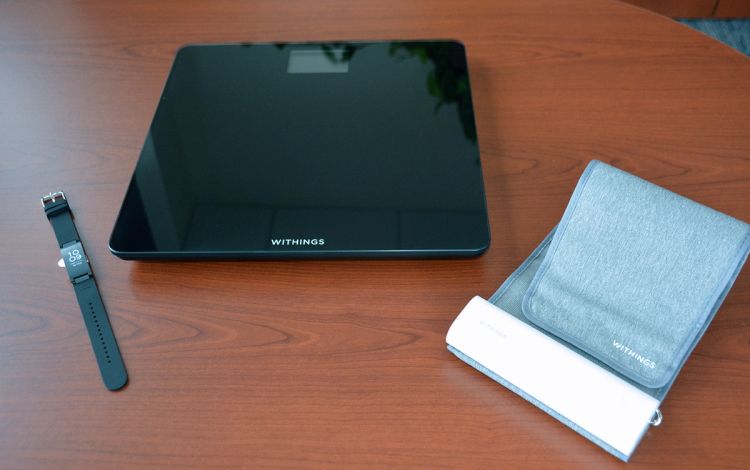Shaw's Technology Work Helps Reshape Health Care Delivery
Duke University School of Nursing Associate Professor Ryan Shaw, PhD, RN, currently has dozens of new activity trackers, scales and other health gadgets in his work area, all of which will soon play a role in an innovative research study that can reshape how care gets delivered.

Duke University School of Nursing Associate Professor Ryan Shaw, PhD, RN, currently has dozens of new activity trackers, scales and other health gadgets in his work area, all of which will soon play a role in an innovative research study that can reshape how care gets delivered.
Shaw, and Associate Professor of Medicine Matthew Crowley, are heading the five-year EXTEND study, which will explore ways to harness cutting edge technology to improve the lives of patients battling chronic health conditions.
The study, which will begin enrolling around 220 patients with uncontrolled diabetes and high blood pressure this spring, will give participants a wearable activity tracker, a digital scale and devices that allow them to test their blood pressure and blood glucose.
All of these devices will be able to sync with the patients’ smart phone and automatically log the data into the patient’s electronic health record.
“We are increasingly able to collect health information from people wherever they are,” Shaw said. “So the health information we’d traditionally collect in a clinic, we can collect while you’re at home. And that’s where health happens, it happens in our lives, not just when we visit a clinic.”
The data collected will better inform the nurses who will conduct telehealth consultations with the patients every two weeks for one year. Patients will continue to track data for a second year. The team will then use data from the devices to develop models to predict clinical events such as hospitalization and emergency department visits.
“For the most part, people have to come to us when they have a health problem, and we can only help people if we have information about them,” Shaw said. “I think this can be an example of how we can shift to a more proactive health system.”
This story was part of a Duke Today article, "State-of-the-Art Technology in Surprising Places."
